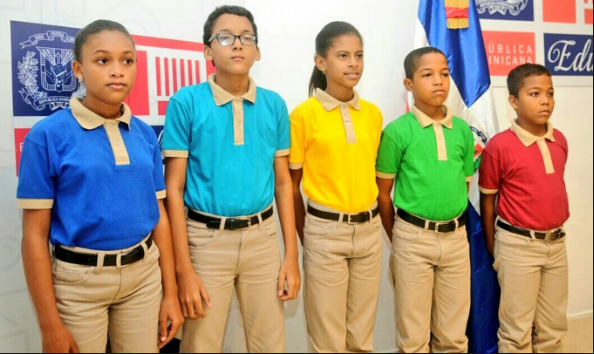
Public and private school students in the Dominican Republic ranked last of nine Latin American countries participating in the 2018 Organisation for Economic Co-operation and Development (OECD) Programme for International Student Assessment (PISA) ranking. The international school ranking is based on tests taken by 15-year olds in 79 countries and regions and tests reading, math and science capacities.
Despite a humongous government investment in education since the previous test in 2015, the overall capacities of Dominican students have not progressed on the international school ranking. The Medina administration has invested billions in new schools, incorporated new technology for the use of the students, provided school breakfasts and lunches and more school hours. Wages were significantly improved. Public school teachers today in many cases are better paid than private school teachers.
Yet PISA 2018 tells that the performance of Dominican students is the worst among 80 countries evaluated in mathematics and science and the second to last in comprehensive reading skills. According to the results of the 2018 Pisa test run, Dominican private and public school students continue to be the lowest achievers among the nine nations tested in Latin America. 79% of students showed a low level of competence in reading, math and science. The Dominican Republic scored 342 in reading, 336 in science and 325 in mathematics.
The director of the OECD, Gabriela Ramos, said when presenting the results in Guadalajara, Mexico that in the nine Latin American countries included in the study, around half of the students had low levels of performance. But, in the Dominican Republic practically all of the students were low achievers, including low scores in basic reading skills.
600,000 students aged 15 years from around the world took the two-hour online tests.
The Dominican Republic ranked 78th of 79 countries assessed in the OECD 2018 global test of students’ reading, mathematics and science skills. Argentina, Brazil, Chile, Colombia, Costa Rica, Dominican Republic, Mexico, Panama, Peru and Uruguay participated in the test this year. The test is a measure of how local pupils compare by international standards. The tests are an influential measure of education standards, offering a different perspective from national exams.
In mathematics skills, Dominican students did especially poor. The Pisa test shows the Dominican Republic continues to rank last in Latin America in mathematics. The DR scored an average of 325 points, only below the Philippines on a global scale. Chile was the Latin American country with the best reading results, ranking 43rd globally, followed by Uruguay and Costa Rica.
The Medina administration has invested billions in the construction of new public schools, but the recent standardized test shows the investment has not yet paid off.
Education Minister Antonio Peña Mirabal said the test scores show that the advances in education matters are to be achieved in the medium and long term. The spokesperson for Educa (Acción Empresarial por la Educación), the private pro-quality education entity, said the test scores reveal that the Dominican Republic needs to change its 20th century education model for one adapted to the 21st century. Educa director Darwin Caraballo said on an interview with Diana Lora and Patricia Solano for La Cuestion radio talk show that a pact for quality education needs to be signed.
In an editorial on 4 December 2019, executive editor of Diario Libre, Adriano Miguel Tejada concludes: “It is evident that what is happening today is the fault of politicians, the ministers of education, the deaf Dominican Association of Teachers, permissive parents and the new perspective students have on what will help them most to get on with their future, among other causes. The tragedy unveiled by PISA is everyone’s fault.”
Read more:
OECD
Listin Diario
El Nacional
Hoy
El Nacional
Domiplay – La Cuestion
Diario Libre
Diario Libre
El Dia
4 December 2019

